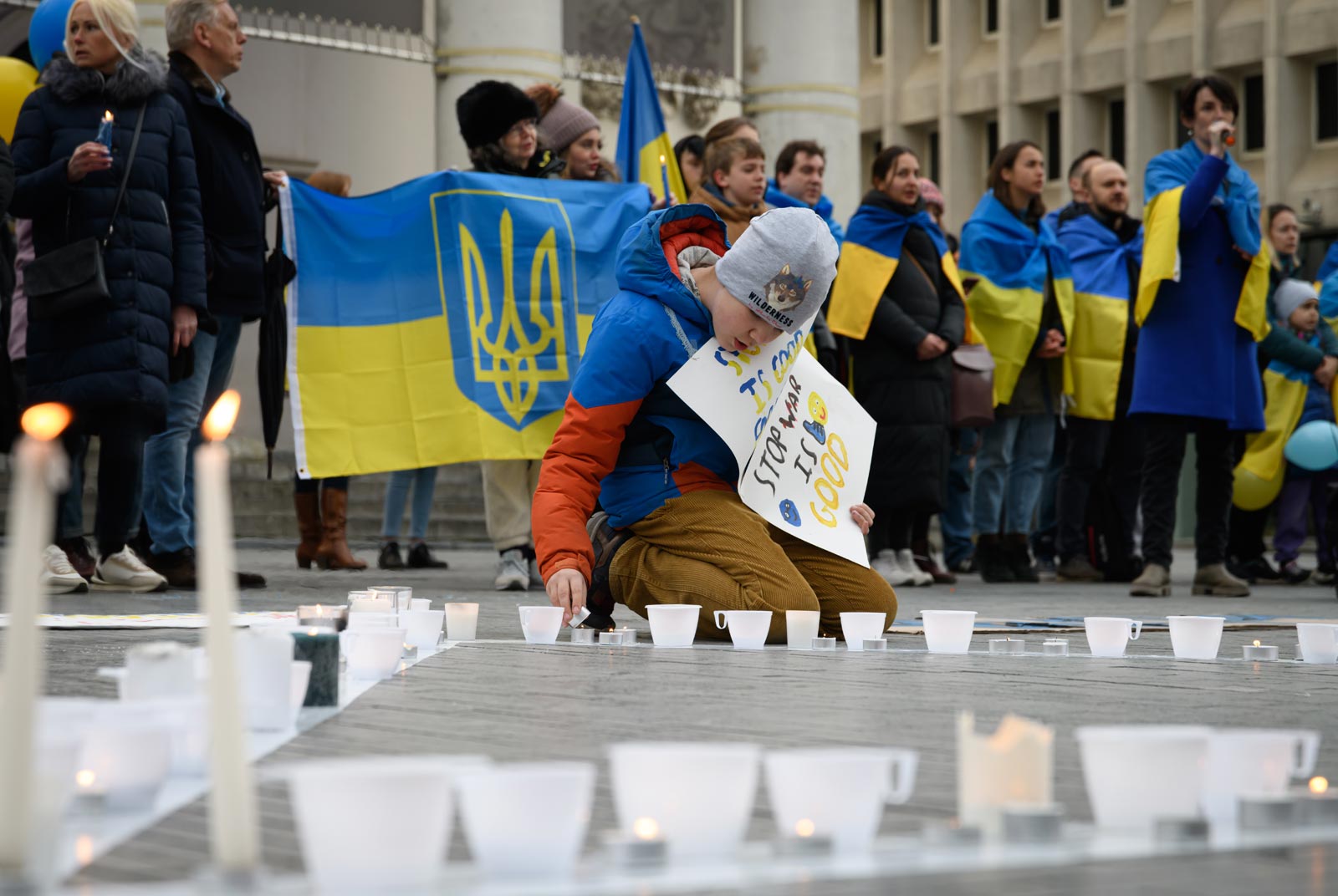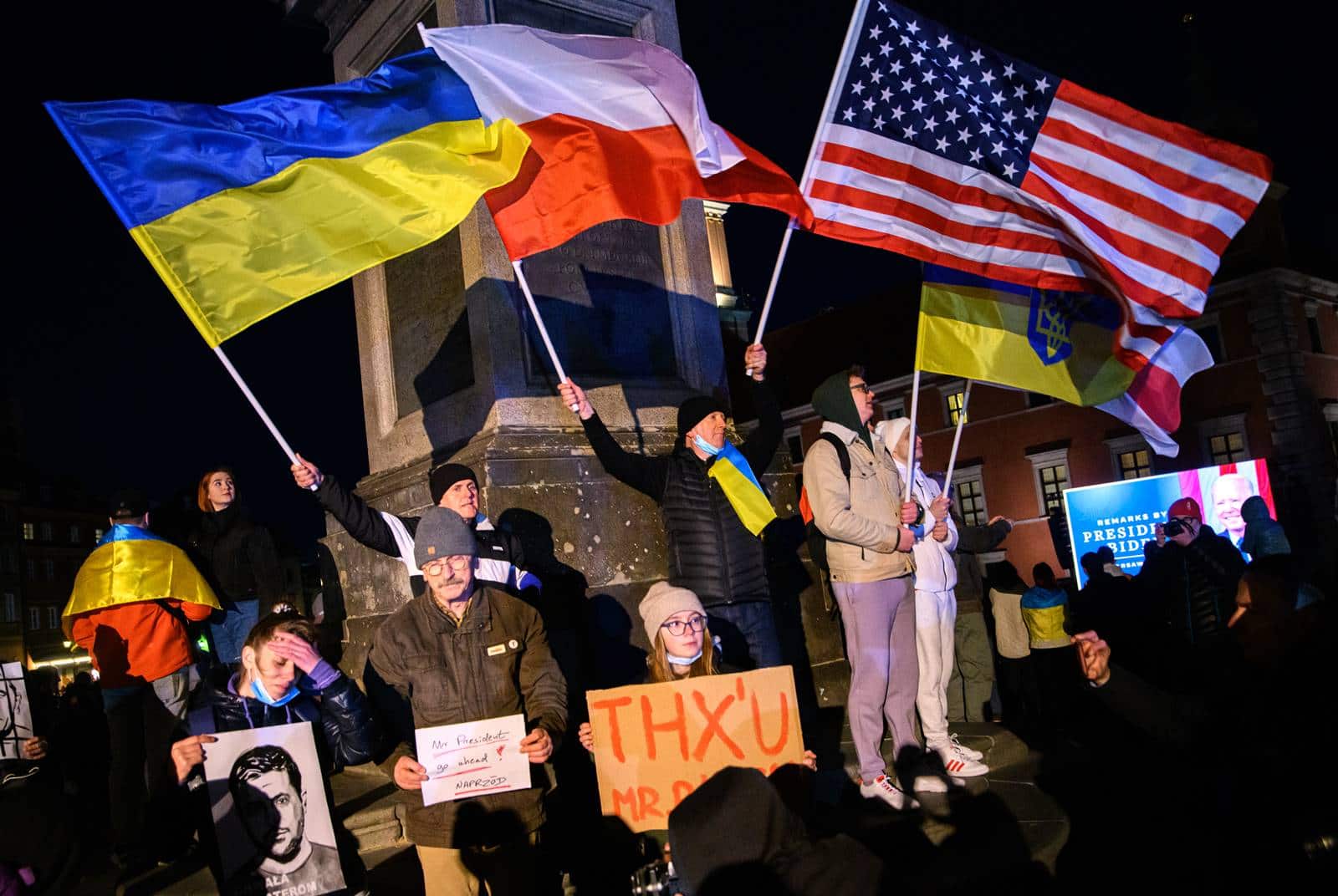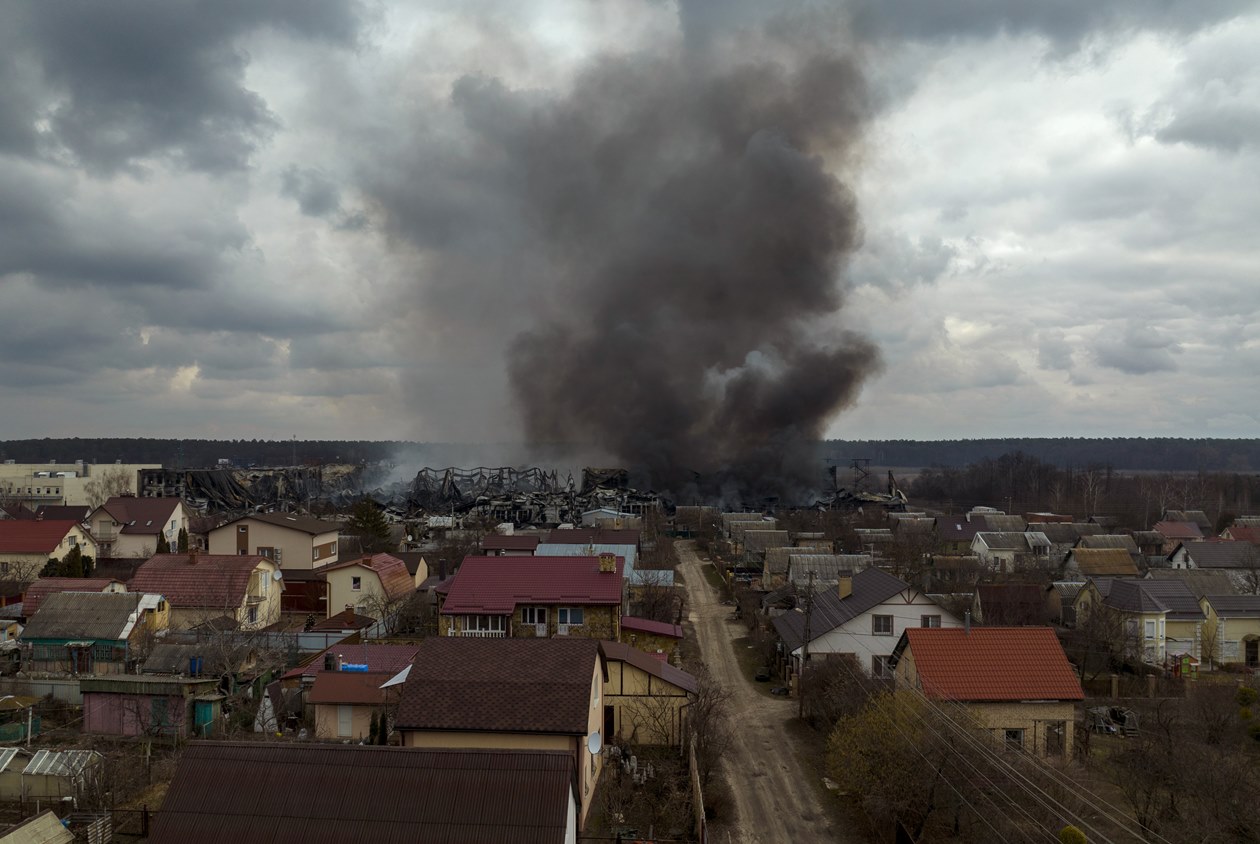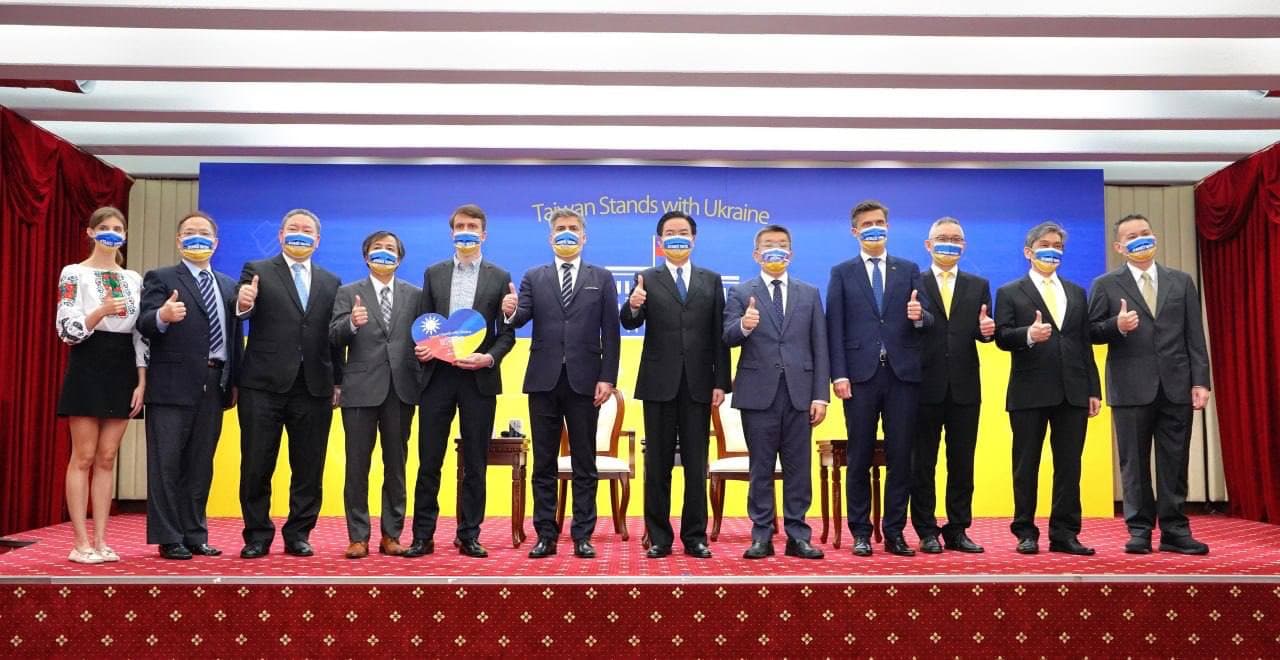Taiwan can help rebuild Ukraine

Source:Pei-Ying Hsieh
In his op-ed, Kuan-ting Chen argues that Taiwan has considerable experience in providing transparent ODA for social infrastructure, which is sorely needed in Ukraine after Russian bombings of healthcare and educational facilities. Additionally, it would be strategically important for Taiwan as the nation seeks to diversify its foreign relations, particularly with partners in central and eastern Europe.
Views
Taiwan can help rebuild Ukraine
By Kuan-ting Chenweb only
Since the onset of the Russian invasion of Ukraine, which began on February 24, people of Taiwan have demonstrated their goodwill as individuals and companies made generous donations to support the people affected by the war. According to Taiwan’s foreign ministry, the special fundraising account of the government-affiliated Relieve Disaster Foundation established for facilitating relief efforts in Ukraine and the neighboring countries which host Ukrainian refugees amassed over 930 million NTD, or over 32 million USD.
In addition to monetary donations, Taiwanese public also showed an overwhelming response to MOFA’s supply drive, which resulted in the collection of more than 31,000 boxes of in-kind donations totaling 650 tons. Twelve shipments have been sent to Slovakia since March 17, with more due to be flown to Poland in the coming days.
This munificent, multi-stakeholder effort to provide support for the people of Ukraine has demonstrated that Taiwan is a reliable partner in the international community, capable of responding to a global crisis.
In short, Taiwan can help, and Taiwan is helping.
Concurrently, we ought to recognize that supporting Ukraine and its recovery is a marathon, rather than a sprint. War in Ukraine has entered its second month.
While the resilience of Ukrainian people in uniform is highly laudable, the prolonged conflict continues to exacerbate the scale of destruction wrought on Ukraine’s cities, villages, and critical infrastructure. According to a preliminary analysis by the Kyiv School of Economics, the physical damage already exceeded 68 billion USD as of April 1, equivalent to more than a third of Ukraine’s GDP in 2021.
As Russia’s aggression in Ukraine continues, the reconstruction bill will only rise. Consequently, the international community needs to start to devise ways to foot it.
In Brussels, London, and Washington, a polylogue of voices calling for a new “Marshall Plan for Ukraine” is increasingly resounding. “I think that what we need for Ukraine, at the end of the day, is an updated model of the Marshall Plan,” said Johannes Hahn, the European Commissioner for Budget and Administration. After meeting with Boris Johnson in Kyiv, Ukrainian president Volodymyr Zelensky thanked the British prime minister for committing to a new “Marshall Plan” for Ukraine. On the other side of the Atlantic, Cynthia Cook, senior fellow in the International Security Program at the Center for Strategic and International Studies, underscored, “investments [in Ukraine’s recovery] will serve a strategic purpose, sending a message to adversaries that Western allied nations will stick together.”
 (Source: Pei-Ying Hsieh)
(Source: Pei-Ying Hsieh)
In Taipei, we cannot afford to rest on our laurels following the early, and admittedly successful, mobilization of our resources. The Ministry of Foreign Affairs, the International Cooperation and Development Fund, and the Taiwan Alliance in International Development will be nodal institutions for facilitating the long-term strategy of Taiwanese relief efforts in Ukraine. The best time to start planning is now.
While Taiwan might lack resources to directly compete with other major providers of official development assistance (ODA), such as the United States or Japan, the largest donor in Asia, our nation has developed a strong capacity for developing social infrastructure in recipient countries. This entails the construction and maintenance of facilities that support social services such as healthcare and education. Support in these areas will be a pressing issue in Ukraine’s recovery, as Russian bombings in the country have targeted hospitals and schools.
It is important to bear in mind that high quality of healthcare and educational services is imperative for sustaining economic development, as a population’s health and education status constitutes the foundation of human capital formation.
According to the data published by The Economist, 196 healthcare facilities have been destroyed across Ukraine, resulting in damages amounting to over 2 billion USD. Additionally, as per estimates provided by the British charity Save the Children, at least 869 education facilities across Ukraine have been damaged since February 24. This situation will considerably hinder social and economic recovery from the war instigated by Russia.
 (Source: AP)
(Source: AP)
Recognizing Taiwan’s commitment to bolstering self-reliant development of its partner countries, facilitating the reconstruction efforts of Ukrainian healthcare and educational facilities is a task to which the nation can, and indeed should, contribute on a large scale.
The strategic dimension of participating in recovery efforts in Ukraine cannot be understated. Cook’s argument rests on a strong foundation—it is important to demonstrate that like-minded democratic partners are actually capable of presenting a response to unjustified atrocities in a unified and assertive manner.
But the rebuilding of Ukrainian infrastructure should not be viewed merely as a litmus test for Western unity and Europe’s resolve to include Kyiv in regional integration projects. Amid the positive momentum in relations between Taiwan and Europe, and Central and Eastern European countries in particular, it will also be a consequential trial for Taiwan’s ability to engage with global like-minded partners in a sustained manner, rather than on an ad-hoc basis.
With the EU expected to play a critical role in coordination of relief efforts in Ukraine, Brussels will need to ensure it properly oversees funding sources to avoid waste, delays, and duplication. Under Taiwan’s society-oriented approach to developmental assistance, relevant authorities have sought to manifest the nation’s commitment to the values of human development and people-to-people exchanges, rather than merely pursue intergovernmental transactions.
Continuing under the well-recognized aegis of the “Taiwan Can Help” initiative, sustained efforts aimed at helping Ukraine would allow key European partners to fully appreciate the potential of Taiwan’s transparent and people-centric social infrastructure and capacity building programs.
 (Source: MOFA)
(Source: MOFA)
Much like Ukraine, Taiwan continues to face an existential threat coming from a bellicose regional authoritarian hegemon. While alarmist rhetoric about the imminence of Chinese invasion should be kept in check, there is clearly a sense of solidarity and shared fate which bonds Taipei and Kyiv. Prior to the Russian invasion, interactions between Taiwan and Ukraine were admittedly limited. Nevertheless, that should not become a deterrent in capitalizing on the current new opening in relations between our freedom-loving peoples who are proud of our respective unique identities.
It is not only my hope, but also an expectation as a citizen, that our government lives up to the task of supporting the recovery of Ukraine. Time is ripe to start the planning for this endeavor at home, and actively engage our key partners in Warsaw, Prague, Brussels and other European capitals as we collectively gear up to help Ukraine rise like a phoenix from the ashes.
(This piece reflects the author's opinion, and does not represent the opinion of CommonWealth Magazine.)
About the author:

Kuan-Ting Chen (陳冠廷) is the Chief Executive Officer at Taiwan NextGen Foundation, a Taipei and Chiayi-based think tank.
Have you read?
♦ EU dealing with conflict in Europe with rival China on the mind
♦ Amidst Ukraine crisis, US sends envoy to Taiwan
♦ Should Taiwan put its future in U.S. hands?
Uploaded by Penny Chiang






